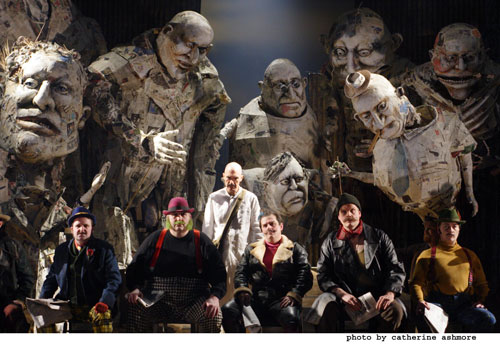
“Satyagraha” is a Sanskrit word meaning “truth force.” Mahatma Gandhi coined the word to describe his philosophy of nonviolent resistance. Although he also used terms such as passive resistance and nonviolence, he created the word “satyagraha” to more accurately embody the spirit of his ideas. “Satya” means truth, and “agraha” means “to grasp or hold.” Compounded, “Satyagraha” conveys the meaning of “grasping or holding onto the truth.” He believed that rather than attempt to defeat or frustrate an opponent, you should convert him. You must cooperate with the wrongdoer to achieve the justice which he unwittingly obstructs, and wean him from error through patience and sympathy.
“Satyagraha” is also the name of Philip Glass’s opera about Gandhi’s formative years in South Africa. Written in 1980, it is the second part in Glass’s “Portrait Trilogy” of operas about men who changed the world. A new production of the opera, created by the English National Opera and the improvisational theater company Improbable, premiers in New York next month. To get a new generation’s perspective on the opera, Glass gave collaborators Phelim McDermott and Julian Crouch freedom in their design and staging. As a result the new production features elements such as video and giant puppets made of newspaper. Thanks to the generous donors who made rush tickets possible (to anyone who can wait a few hours on a weekday afternoon), I’m looking forward to catching this opera.







